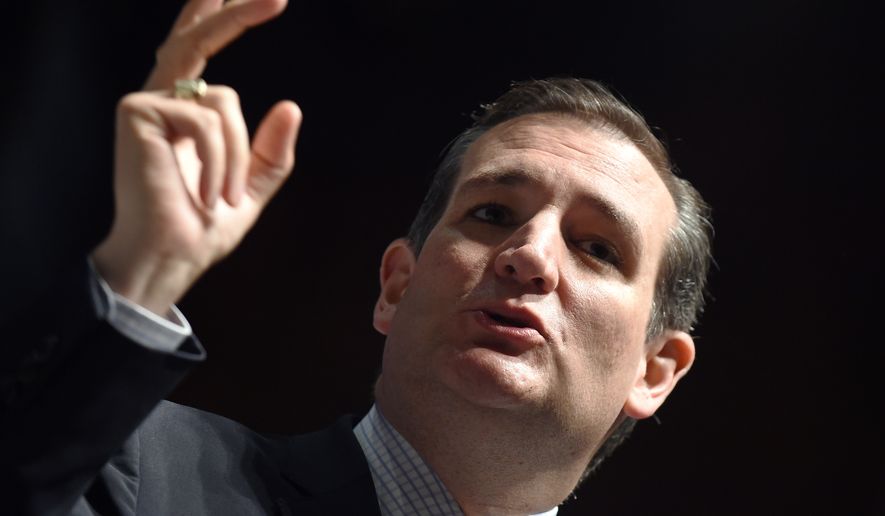A slate of 2016 GOP presidential hopefuls paid their respects over the weekend to the voters of South Carolina, who have shown — outside of their 2012 Newt Gingrich preference — a knack for getting behind the party’s eventual nominee.
Republicans in South Carolina say they are confident that they can get back to their winning ways in the 2016 election because voters are more focused on supporting a candidate that cannot only win the state’s primary but also the general election.
“I think we let emotions take over in ’12 versus really thinking about it,” said Glenn McCall, a Republican National Committee member from South Carolina. “I think that is the difference with ’16. Now folks are really looking for a candidate who can win.”
However, they also acknowledge that picking the party’s eventual nominee could be a tall task given the sheer size of the field as well as the proliferation of super PACs and a condensed nominating calendar.
About a dozen current and prospective Republican contenders addressed the South Carolina Freedom Summit, hosted by Citizens United, over the weekend in Greenville, where they took aim at the Obama administration, touted their conservative records and vowed to take a more muscular approach to global hot spots, playing to the state’s deep pool of military-minded voters.
“The great state of South Carolina plays a pivotal role in our nation,” said Sen. Ted Cruz of Texas. “You have the blessing and the curse. So you are going to see presidential candidates descend upon you like those federal regulators and locusts. My one request is to please hold back on the pesticide.”
Mr. Cruz added, “I will tell you, the responsibility of this great state in the Republican Party is to ensure that we nominate a conservative.”
Former South Carolina U.S. Sen. Jim DeMint, who now heads The Heritage Foundation, also stressed South Carolina’s importance, describing the state as the “stronghold of conservative Republicanism in the country.”
Other speakers included: Wisconsin Gov. Scott Walker; Sen. Marco Rubio of Florida; former Sen. Rick Santorum, of Pennsylvania; Louisiana Gov. Bobby Jindal; former Texas Gov. Rick Perry; former Hewlett Packard CEO Carly Fiorina; retired neurosurgeon Ben Carson; and tycoon Donald Trump.
The Real Clear Politics average of national polls shows that former Florida Gov. Jeb Bush, who did not attend the gathering, is leading the GOP field, followed by Mr. Rubio and Mr. Walker.
Heading into 2012, the winner of the South Carolina primary went on to win the party’s nomination for nearly three decades — running from Ronald Reagan in 1980 to Sen. John McCain in 2008.
Mr. Gingrich won the hearts of South Carolina voters on the debate stage, lashing out at a moderator for prodding him about an extramarital affair and his ex-wife’s claim that he wanted an open marriage.
Mr. Gingrich won 40 percent of the vote in South Carolina, compared to 28 percent for Mr. Romney and 17 percent for Mr. Santorum, who is expected to announce he is running again later this month.
The victory marked the high-water mark for the Gingrich campaign.
“We’ve had a pretty good record since 1980, with that one blemish,” said Chad Connelly, former chairman of the South Carolina GOP.
Asked whether South Carolina will get back to its winning ways, Mr. Connelly said, “I think we will.”
The early caucus and primary states, which also include Iowa, New Hampshire and Nevada, have long served as momentum-builders in presidential campaigns.
But this year, GOP analysts say, could be different given the influx of super PACs, which can enable a few wealthy donors to keep afloat a financially strapped campaign. For example, Mr. Santorum was able to stay in the race in 2012 despite otherwise sluggish fundraising thanks in large part to support from the Red White and Blue PAC.
Most of the likely candidates have supportive super PACs, including Mr. Rubio, Mr. Cruz and Mr. Perry.
Mr. Connelly said that it is hard to quantify how much influence the outside groups will have on the race this time around.
“But there is no doubt about it, it is going to change the game, and I think it is going to give people some sticking power that they didn’t have in the past,” he said.
• Seth McLaughlin can be reached at smclaughlin@washingtontimes.com.




Please read our comment policy before commenting.